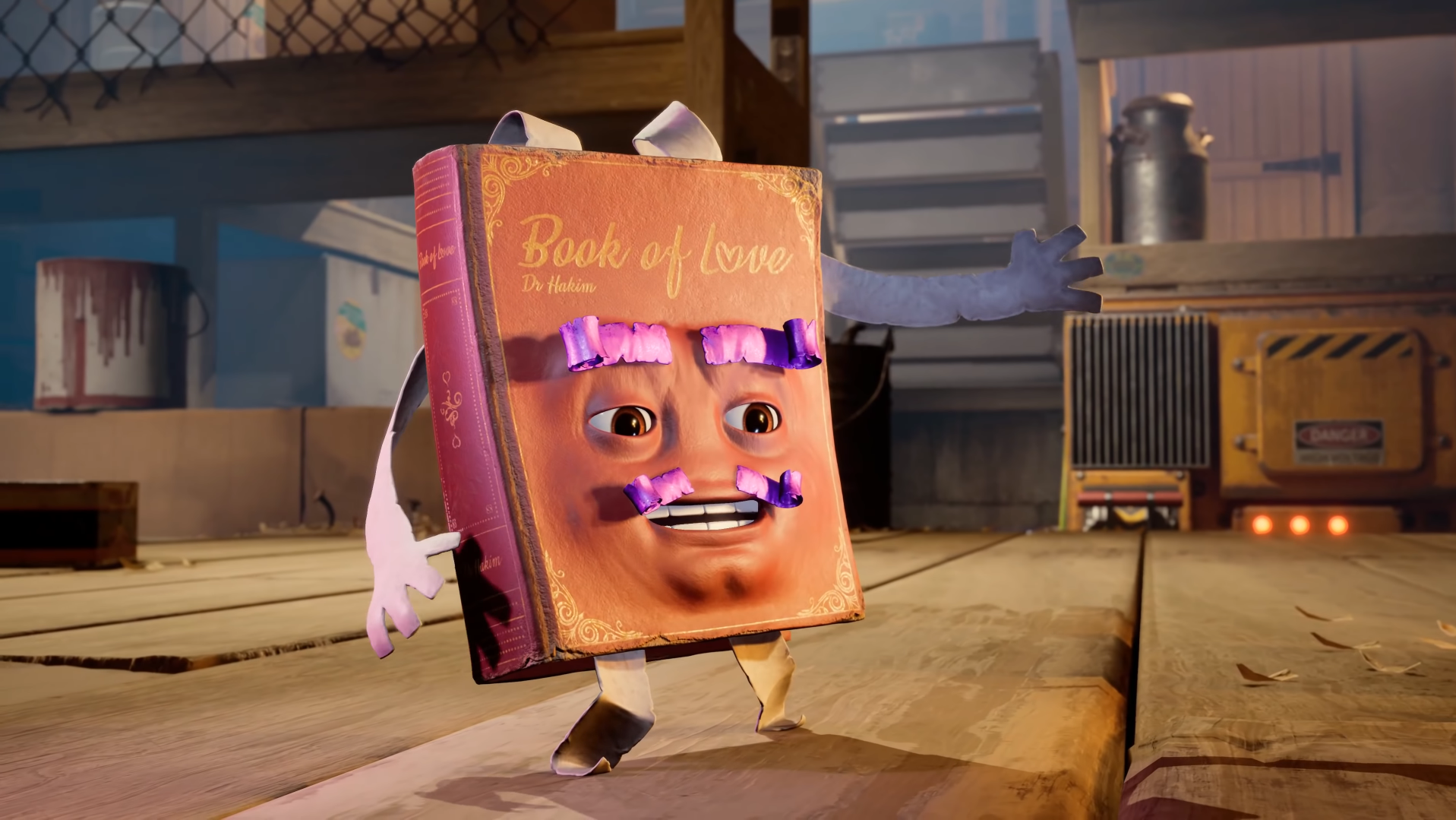Take-Two takes issue with It Takes Two trademarking 'takes two,' too
Hazelight Studios abandoned its trademark on the hit co-op game earlier this year over opposition from Take-Two.

Hazelight Studios is caught up in a trademark dispute with publisher Take-Two Interactive over its hit co-op game It Takes Two, according to a Eurogamer report, which found that the studio abandoned its trademark application for the game's title after Take-Two indicated that it would oppose it.
Hazelight applied for the trademark in May 2020, but abandoned the application on March 25, one day ahead before It Takes Two's launch on March 26. A Hazelight representative told Eurogamer that it can't comment on the matter because it is still ongoing, but said the studio is "hopeful it will be resolved."
Industry analyst Michael Futter said on Twitter that Take-Two's objection may not have a material impact on the game itself. "The trademark conflict means that Hazelight can't protect the name, not that they will be forced to change it," Futter tweeted. "They could change it if they want to protect the name, but honestly, it's probably not worth it to them to do that."
Take-Two's objection is primarily preventative, according to Futter: "Take-Two isn’t saying that Hazelight is infringing, but it doesn’t want them to be able to protect the name (and put it out of TT’s reach since it is so close to their company name)."
According to lawyer Richard Hoeg of Hoeg Law, Take-Two has become very aggressive in protecting its trademarks: In a recent podcast he said the company has made at least 25 extensions or objections to trademark filings over the past three months alone. Electronic Arts, by way of comparison, has 25 trademark interactions over the past six years. Activision and ZeniMax have comparably languid claim rates.
Some of Take-Two's claims are clearly valid, according to Hoeg, while others are more of a reach, but regardless of how they hold up in a court, the company's zealous protection of its trademarks could stop other companies from even trying to claim trademarks for names at all similar to those owned by Take-Two, opting to avoid the hassle of having to defend them against Take-Two's legal team. That chilling effect is at least partially the point.
"Take-Two is delivering a message with this kind of action to other lawyers, to other folks that could potentially use the word Rockstar, or the letter R, or the name Dot or Dots or Two Dots, or, as it turns out, Take-Two itself, and saying, 'Go away. You don't even want to get into this because we will just make your lives miserable'," Hoeg said.
The biggest gaming news, reviews and hardware deals
Keep up to date with the most important stories and the best deals, as picked by the PC Gamer team.
Take-Two is "making the process the punishment," he continued. "They aren't the first and they certainly won't be the last to do this kind of thing. It's not necessarily illegal, but it is certainly aggressive."
That appears to be what happened here: Hazelight applied for the It Takes Two trademark, the USPTO published it in the Trademark Official Gazette, Take-Two Interactive then filed for an extension of the time allowed to officially oppose the trademark, and Hazelight, seeing the writing on the wall, walked away.
It's an unfortunate hassle for Hazelight but doesn't seem to have negatively impacted It Takes Two's fortunes. It's sold more than three million copies so far—very impressive for a relatively niche co-op action adventure—and it's nominated in five categories at this year's Game Awards, including Game of the Year.
Take-Two declined to comment on the matter. I've reached out to Hazelight for more information and will update this article if I receive a reply.

Andy has been gaming on PCs from the very beginning, starting as a youngster with text adventures and primitive action games on a cassette-based TRS80. From there he graduated to the glory days of Sierra Online adventures and Microprose sims, ran a local BBS, learned how to build PCs, and developed a longstanding love of RPGs, immersive sims, and shooters. He began writing videogame news in 2007 for The Escapist and somehow managed to avoid getting fired until 2014, when he joined the storied ranks of PC Gamer. He covers all aspects of the industry, from new game announcements and patch notes to legal disputes, Twitch beefs, esports, and Henry Cavill. Lots of Henry Cavill.

